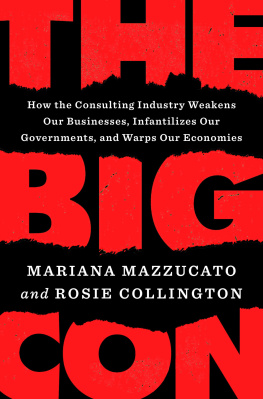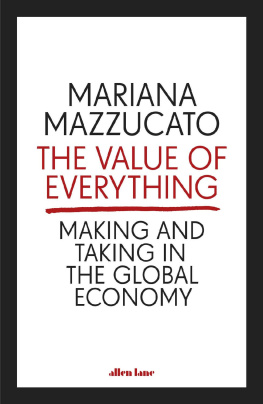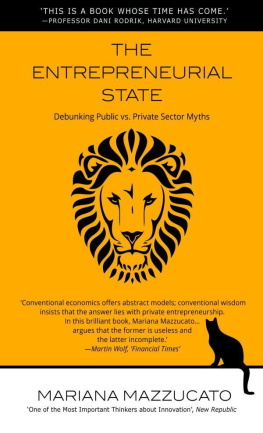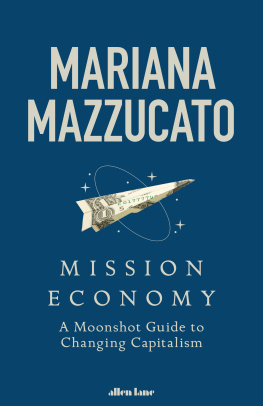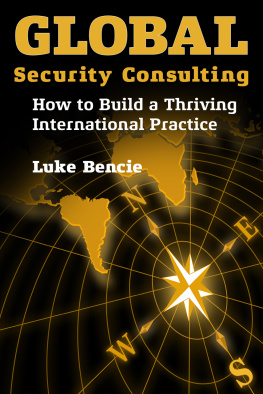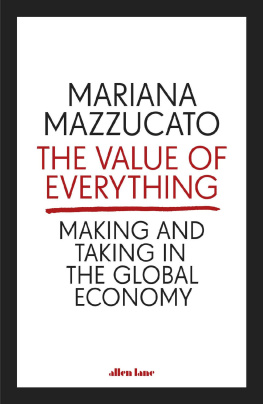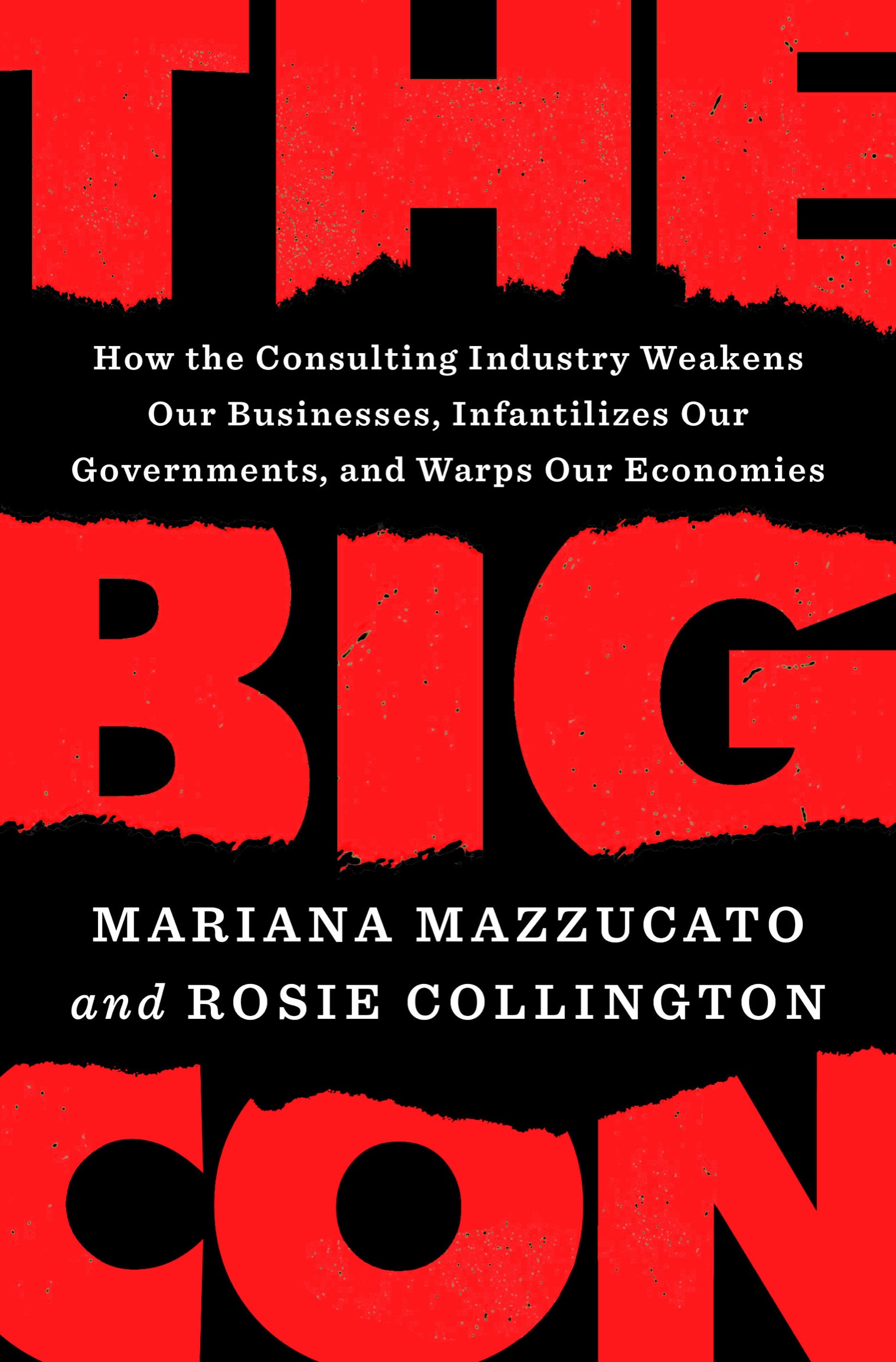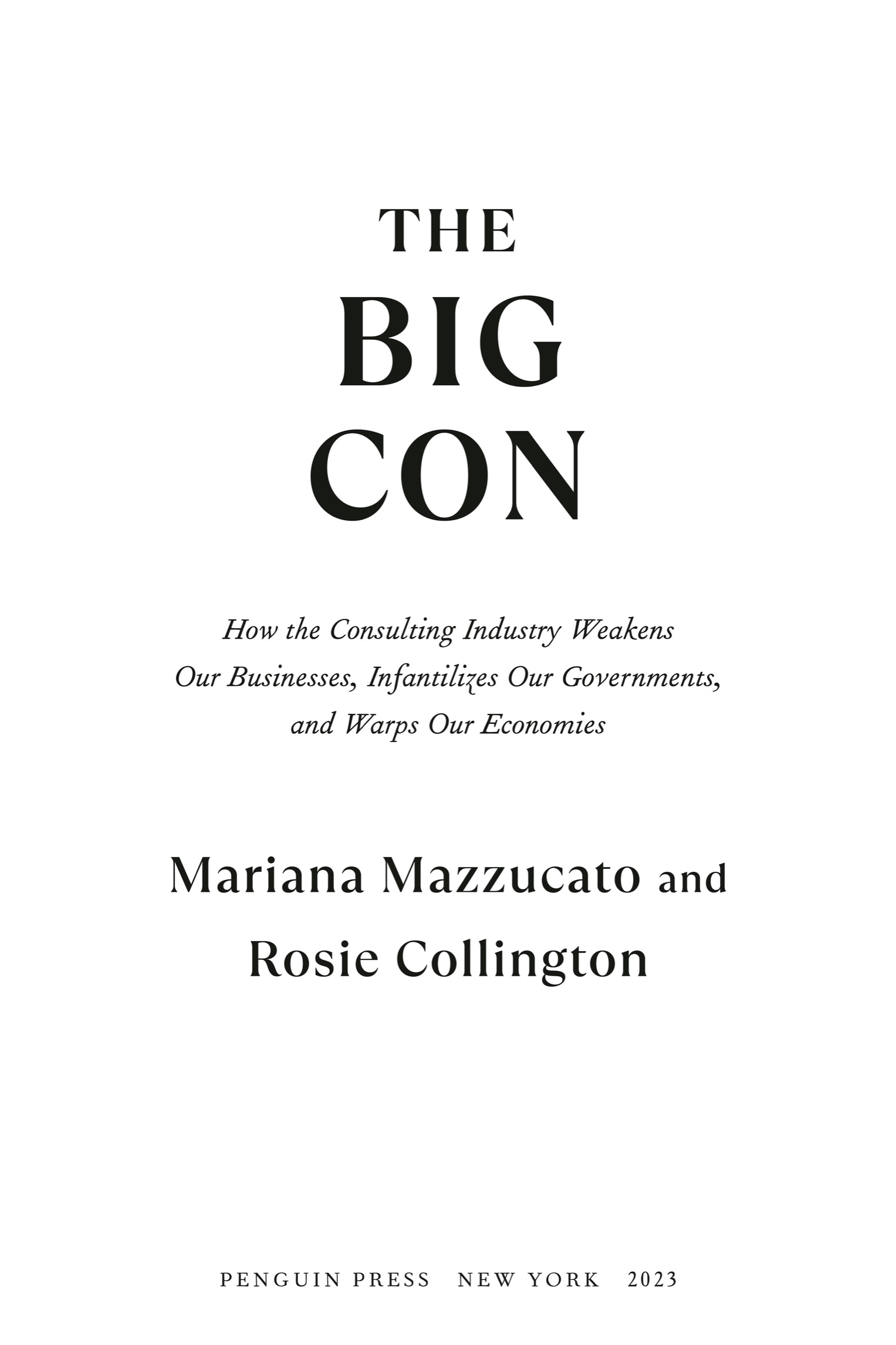Copyright 2023 by Mariana Mazzucato and Rosemary H. Collington
Penguin Random House supports copyright. Copyright fuels creativity, encourages diverse voices, promotes free speech, and creates a vibrant culture. Thank you for buying an authorized edition of this book and for complying with copyright laws by not reproducing, scanning, or distributing any part of it in any form without permission. You are supporting writers and allowing Penguin Random House to continue to publish books for every reader.
To all who challenge the hollowing out of their organizations, and to our friends and colleagues at the UCL Institute for Innovation and Public Purpose
Acknowledgments
The book you hold in your hands began as a series of questions: Why do so many governments outsource critical activities to consulting companies? Why has the market for consulting services grown so much in recent decadesand globally? What do consultants do, and what role does the consulting industry play in the economy overall? Why do so many well-meaning and smart graduates choose to work for these companies? And what might this tell us about contemporary capitalism?
We wanted to unpack what happens to the brain of an organization when it is not learning by doing because someone else is doing the doing. To explore these questions, we had conversations with government leaders, civil servants, business executives, employees on both sides of consulting contracts, and colleagues and friends who shared their stories with us. From them, we learned not only about current challenges, but what alternatives might look like. Above all, they showed us that even within the most hollowed out of government departments and the most denigrated of workforces, visions of a better future endureof more capable organizations, more responsive governance and more inclusive, sustainable and innovative economies. We hope this book not only starts a conversation about the problems with how our governments and businesses are run today, but also provides some tools and inspiration for creating public purpose within them in the future.
Mariana founded the Institute for Innovation and Public Purpose (IIPP) at University College London five years ago with an ambition to strengthen the public sectors remit and capacity. Rosie joined IIPP as Marianas PhD student in 2020. It has been a delight partnering on the book. This process brought together Marianas experiences writing about the theory and practice of a more ambitious, entrepreneurial and mission-oriented public sector, driven by public value and purpose, with Rosies earlier research on what happens when critical infrastructures and skills are outsourced to others.
We couldnt have imagined a better intellectual home to carry out the research and make sense of the consulting industry. Our colleagues working across economics and public policy and IIPPs partners in governments, businesses and communities have been a constant source of inspiration, reflection and challenge. We are immensely grateful for the research seminars, public lectures, workshops and conversations with students and staffwhether over Zoom or in the kitchen at the Institutethat have helped to shape this book in its development. Everyone at IIPP, from our wonderful students and academics to facilities staff and teams working across policy, partnerships and communications, helps to make the Institute a place for confronting the biggest challenges our societies face today.
Indeed, like all books, this one has benefited from the collective knowledge and support of many people.
The current and former consultants and people who contract them that we have interviewed and spoken to while researching for the book have been tremendous guides as weve sought to navigate the complicated world of consulting. We are grateful for their openness, insights and honesty. Special thanks go to the young consultants who have shared their experiences of recruitment, training and the early years of a consultancy career. We have agreed not to name them here.
Others have answered specific questions we had about consulting and its role in the parts of the global economy where they have expertise. They include Damon Silvers, a trade union specialist and visiting professor at IIPP; Professor Lonce Ndikumana; health policy specialist Els Toreele; David White from the International Association of Machinists and Aerospace Workers; historian and public sector consultant Dr. Antonio Weiss; Simon Gallow, Andreas Smith Jrgensen and Nora Lambrecht. We are also grateful to those who alerted us to particular cases in their home countries. These include IIPP MPA students Hafiz Noer, Dan Yore and Abhilaasha Kaul, and Hanna Sderling.
A number of people have read chapters and early drafts of the book. We thank Zia Khan from the Rockefeller Foundation, Sonny Bardhan from the Omidyar Foundation, industrial relations scholar Dr. Matt Cole, Professor Rainer Kattel, Michael Amery, Adrienne Buller, Dr. Rasmus Corlin Christensen, Toke Dahler, Fausto Gernone, Simon Gallow, and Katie Kedward. Any errors are, of course, ours.
We are grateful to our agent, Sarah Chalfant, as well as Jessica Bullock and Rebecca Nagel from The Wylie Agency for believing in this project from the outset. Stuart Proffitt and Will Heyward from Penguins publishing houses on both sides of the Atlantic have been the best editors that writers can hope for: creative and critical, astute and apt to transform our occasionally academic jargon into something people might enjoy reading. Working with them and others at PenguinAlice Skinner, Rebecca Lee, Natalie Coleman, Tamsin Shelton, Sarah Hutson and Juli Kiyanhas been a pleasure. Dominique Garcia, Alex Homans, Adam Albrecht, Luca Kuehn von Burgsdorff and Sarah Doyle provided critical support from the IIPP Directors Office, making sure our workflow continued to progress on earth, water and air! Thank you for your diligence and patience.
Finally, to our family and friends: thank you. Research and writing are often solitary and slow endeavors. For both of us, moments of joy with the ones we love have been the lifeblood that pulses through the fingertips at the laptop keys, especially when weve been writing late at night and far away from home. Mariana would like to thank her children, Leon, Micol, Luce and Sofiaand their friendswho never stop pushing on the need for all of us to do better in fighting against inequities so visible across the entire globe and on our doorstep. Rosie would like to thank her parents for their unflagging support, particularly during the weeks they shared their house with her and a legion of notebooks. She would also like to thank Toke Dahler, whose love and crosswords on the sofa have made the experience of writing a book for the first time all the more glorious and far less daunting than it otherwise might have felt.
While the list of individuals we want to thank is long, it could be much longer. We have had the privilege of working with leaders in the business sector and civil society who recognize the necessity of genuine partnerships between organizations that requires not only capacity and ambition, but also a different type of social contract that has mutualism at its core. This book has also benefited enormously from our interactions with civil servants globally through our research and work at IIPP, who, notwithstanding what seems like a constant attack on their competencies, continue to dedicate their lives to the common good. It is to them we dedicate this book.

